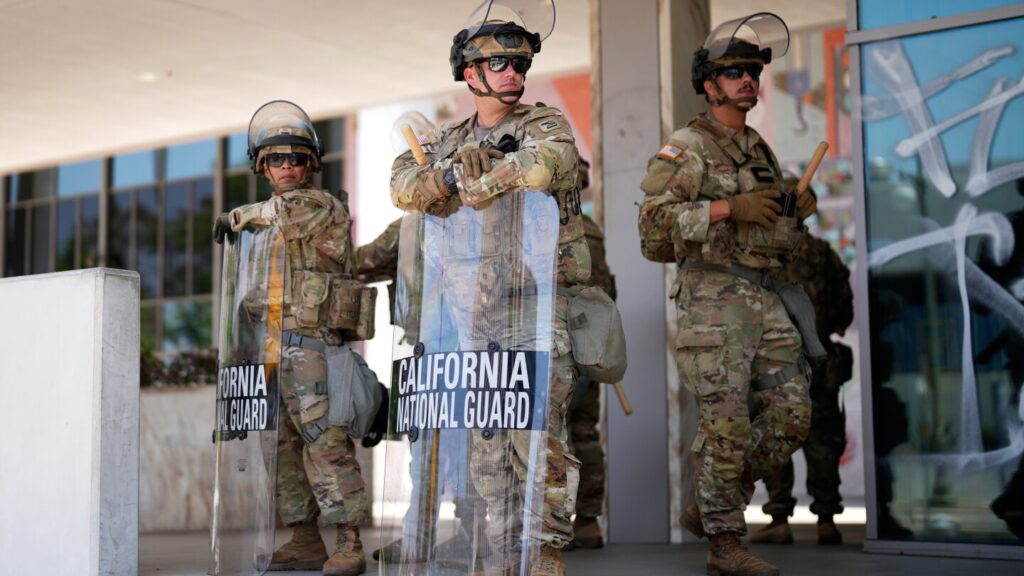In Los Angeles, President Trump’s aggressive approach to enforcing immigration laws and maintaining order is on full display through the deployment of hundreds of National Guard troops to quell protests against immigration raids. Despite objections from California Governor Gavin Newsom, Trump has authorized the deployment of active-duty troops to support the guard, signaling a significant expansion of executive authority. The president’s swift and assertive actions aim to deliver on his promise of mass deportations, with plans to secure additional funding from Congress for detention and deportation operations.
The protests, sparked by federal immigration arrests, have spread to multiple cities, with California officials challenging the deployment of troops as a violation of state sovereignty. Democratic leaders, including Senator Alex Padilla, criticize the deployment as escalating tensions and question the mission’s justification. Trump’s approach, characterized by strong rhetoric and military involvement, contrasts with his response to previous domestic unrest, raising concerns about the extent of his executive power.
As Trump pushes for a robust immigration strategy, involving the deployment of troops against perceived “insurrectionists,” critics argue that the tactics employed are disproportionate and driven by political motives. The administration’s reliance on military support underscores a shift towards a more aggressive immigration enforcement approach, with potential implications for future policies under a Republican-controlled Congress. Amidst growing dissent and legal challenges, the clash between federal and state authorities highlights the contentious nature of immigration enforcement in the current political landscape.

